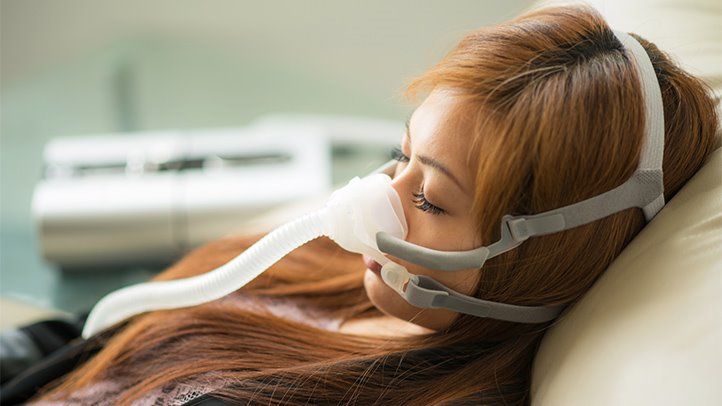Tired of tossing and turning at night, struggling to catch a peaceful breath? If sleep apnea is disrupting your rest, you’re not alone. This common yet serious condition interrupts breathing during sleep, impacting the quality of your rest and overall health. But fear not! In this blog post, we’ll dive into the latest innovative approaches in treating sleep apnea that are changing the game for sufferers worldwide. Get ready to explore cutting-edge solutions and alternative therapies that could transform your sleep experience for the better!
Understanding Sleep Apnea
Sleep apnea is a sleep disorder characterized by pauses in breathing or shallow breaths during slumber. These interruptions can occur multiple times throughout the night, leading to disrupted sleep patterns and low oxygen levels in the body. There are three main types of sleep apnea: obstructive, central, and complex (a combination of both). Obstructive sleep apnea is the most common form and happens when the throat muscles relax, causing a blockage in the airway. Central sleep apnea occurs when the brain fails to send signals to control breathing properly.
People with untreated sleep apnea may experience symptoms such as loud snoring, daytime fatigue, morning headaches, irritability, and difficulty concentrating. Sleep apnea not only affects quality of life but also poses serious health risks if left unmanaged. Seeking proper diagnosis and treatment is crucial for improving overall well-being and avoiding potential complications associated with this condition.
Traditional Treatment Options
When it comes to treating sleep apnea, traditional methods have been the go-to approach for many years. One common treatment is Continuous Positive Airway Pressure (CPAP) therapy, where a machine delivers a steady flow of air through a mask worn over the nose and mouth during sleep. This helps keep the airways open and prevents pauses in breathing.
Another conventional option is oral appliances that are custom-made by dentists to help reposition the jaw and tongue to keep the airway clear while sleeping. Surgery can also be considered for severe cases of sleep apnea, aiming to remove excess tissue in the throat or repositioning structures that may obstruct breathing.
Lifestyle changes such as weight loss, avoiding alcohol and sedatives before bed, and sleeping on your side instead of your back can also complement these traditional treatments. It’s essential to work with healthcare providers to determine the best course of action for managing sleep apnea effectively.
The Rise of Innovative Approaches
Sleep apnea treatment has seen a shift towards more innovative approaches in recent years. As researchers and healthcare professionals delve deeper into understanding this sleep disorder, new methods of managing it have emerged.
One such approach is the use of oral appliances that help keep the airways open during sleep. These devices are becoming popular alternatives to traditional CPAP machines for some patients who find them uncomfortable or cumbersome.
Another rising trend is the incorporation of positional therapy, which focuses on adjusting sleeping positions to prevent airway blockages. This method can be particularly effective for individuals with mild to moderate obstructive sleep apnea.
Furthermore, advancements in technology have led to the development of smart devices and apps that monitor breathing patterns and provide feedback to users about their sleep quality. These tools empower individuals to take an active role in managing their condition.
With these innovative strategies gaining traction, individuals with sleep apnea now have more options than ever before when it comes to finding a treatment approach that works best for them.
Alternative Therapies for Sleep Apnea
When it comes to managing sleep apnea, exploring alternative therapies can offer additional options beyond traditional treatments. Alternative therapies encompass a range of approaches that focus on improving sleep quality and reducing symptoms associated with the condition.
One alternative therapy for sleep apnea is acupuncture, which involves the insertion of thin needles into specific points on the body to help alleviate breathing issues during sleep. Another option is yoga and meditation, as these practices can promote relaxation, reduce stress levels, and improve overall well-being.
Additionally, herbal remedies like chamomile or valerian root teas may help in promoting better sleep quality. Some individuals also find relief through chiropractic adjustments or positional therapy techniques designed to optimize airway alignment during sleep.
Exploring alternative therapies alongside conventional treatments under the guidance of a healthcare professional can provide a holistic approach to managing sleep apnea effectively.
New Technological Advancements in Sleep Apnea Treatment
In the realm of sleep apnea treatment, technology is rapidly advancing to offer innovative solutions. One such advancement is the development of continuous positive airway pressure (CPAP) devices that are more comfortable and quieter, enhancing patient compliance.
Another exciting technological breakthrough is the use of mandibular advancement devices (MADs) that help keep the airway open by moving the lower jaw forward during sleep. These oral appliances provide a non-invasive alternative for those who struggle with CPAP therapy.
Furthermore, smart devices and apps equipped with sensors can monitor sleep patterns and detect apnea events, providing valuable data for both patients and healthcare providers in optimizing treatment strategies.
The integration of artificial intelligence into sleep apnea management allows for personalized treatment plans based on individual needs and responses to therapy. With these cutting-edge technologies, individuals with sleep apnea have more options than ever before to improve their quality of life through effective treatment methods.
Holistic Approaches to Managing Sleep Apnea
When it comes to managing sleep apnea, holistic approaches can offer a well-rounded perspective on treatment. Holistic care focuses on the whole person, considering physical, mental, and emotional aspects of health.
Incorporating lifestyle changes like adopting a balanced diet and engaging in regular exercise can have positive impacts on sleep quality and overall well-being. Practices such as yoga or meditation may also help reduce stress levels that can exacerbate sleep apnea symptoms.
Furthermore, alternative therapies like acupuncture or herbal remedies are gaining attention for their potential benefits in improving sleep patterns and addressing underlying causes of sleep apnea.
By taking a comprehensive approach to managing sleep apnea through holistic practices, individuals may find relief that goes beyond traditional medical interventions alone. Consulting with healthcare professionals knowledgeable in holistic medicine can provide personalized guidance tailored to individual needs for optimal results.
Combining Different Methods for Optimal Results
When it comes to managing sleep apnea, combining different treatment methods can often lead to more effective results.
For instance, incorporating traditional therapies like CPAP with newer techniques such as oral appliances or positional therapy can provide a comprehensive approach to tackling the condition. By customizing a treatment plan that integrates various strategies tailored to individual needs, patients may experience improved quality of sleep and overall well-being.
Moreover, exploring alternative therapies like acupuncture or yoga in conjunction with medical interventions can offer holistic benefits for individuals dealing with sleep apnea. These complementary approaches aim to address not only the physical symptoms but also promote relaxation and stress reduction which are crucial factors in managing the condition.
By blending different modalities under the guidance of healthcare professionals, individuals have the opportunity to optimize their treatment outcomes and enhance their overall sleep health.
The Importance of Consulting a Medical Professional
When it comes to managing sleep apnea, seeking guidance from a medical professional is crucial. These specialists have the expertise to diagnose the condition accurately and recommend personalized treatment plans tailored to your specific needs.
Consulting a healthcare provider can help you navigate through the various treatment options available, ensuring that you receive the most effective care for your sleep apnea. They can also monitor your progress over time and make adjustments to your treatment as needed.
A medical professional can conduct comprehensive evaluations to identify any underlying issues contributing to your sleep apnea, such as obesity or nasal congestion. By addressing these root causes, they can work towards improving your overall quality of life and reducing symptoms associated with the condition.
Don’t hesitate to reach out to a healthcare provider if you suspect you may have sleep apnea or if you are experiencing difficulties with your current treatment plan. Their expertise and support are invaluable in helping you manage this potentially serious disorder effectively.
Conclusion
The landscape of sleep apnea treatment is evolving rapidly, with innovative approaches and advanced technologies offering new possibilities for individuals struggling with this condition. From traditional methods to alternative therapies and holistic approaches, there are now more options available than ever before.
It’s essential for those dealing with sleep apnea to consult a medical professional to determine the most suitable treatment plan tailored to their specific needs. By combining different methods and staying informed about the latest advancements in sleep apnea care, individuals can optimize their chances of managing this condition effectively and improving their overall quality of life.
As research continues to expand our understanding of sleep apnea and its treatment options, it is clear that there is hope for those affected by this disorder. With a proactive approach and access to comprehensive resources, individuals can find relief from the symptoms of sleep apnea and enjoy better health and well-being.












